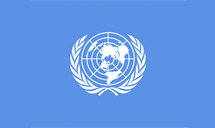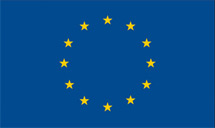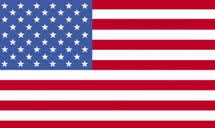Overview
Saudi-born Faysal Ahmad Bin Ali al-Zahrani is a U.S.- and U.N.-designated ISIS operative who previously oversaw the group’s oil and gas industry in northeastern Syria.“Narrative Summaries of Reasons for Listing,” United Nations Security Council, April 20, 2016, https://www.un.org/sc/suborg/en/sanctions/1267/aq_sanctions_list/summaries/individual/faysal-ahmad-bin-ali-al-zahrani;
“Counter Terrorism Designation,” U.S. Department of Treasury, February 11, 2016, https://www.treasury.gov/resource-center/sanctions/OFAC-Enforcement/Pages/20160211.aspx.
Zahrani joined ISIS’s natural resources ministry in 2014 and worked under the now-deceased head of ISIS’s oil and gas division, Abu Sayyaf.“Narrative Summaries of Reasons for Listing,” United Nations Security Council, April 20, 2016, https://www.un.org/sc/suborg/en/sanctions/1267/aq_sanctions_list/summaries/individual/faysal-ahmad-bin-ali-al-zahrani;
Thomas Joscelyn, “Treasury sanctions Islamic State oil and religious officials, facilitator in Gaza,” Long War Journal, February 11, 2016, http://www.longwarjournal.org/archives/2016/02/treasury-sanctions-islamic-state-oil-and-religious-officials-facilitator-in-gaza.php. By January 2015, Zahrani oversaw at least five oil fields located in Syria’s al-Hasakah Governorate, according to the U.S. Treasury. ISIS reportedly received tens of millions of dollars in profits from those oil fields between September 2014 and March 2015. In May 2015, Zahrani reportedly took control of the production of vehicle-borne Improvised Explosive Devices (IEDs) at an oil facility in Rukaybah, al-Hasakah Governorate. Following Abu Sayyaf’s death that August, Zahrani assumed responsibility of all ISIS oil and gas activities in al-Hasakah.“Treasury Sanctions Key ISIL Leaders and Facilitators Including a Senior Oil Official,” U.S. Department of Treasury, February 11, 2016, https://www.treasury.gov/press-center/press-releases/Pages/jl0351.aspx.
The U.S. Treasury said in December 2015 that Zahrani “remained responsible” for ISIS’s oil and gas activities in the town of Shaddadi, located in al-Hasakah Governorate. However, ISIS lost control of al-Hasakah Governorate in July 2015.“Treasury Sanctions Key ISIL Leaders and Facilitators Including a Senior Oil Official,” U.S. Department of Treasury, February 11, 2016, https://www.treasury.gov/press-center/press-releases/Pages/jl0351.aspx;
Sarah Almukhtar, Tim Wallace, and Derek Watkins, “ISIS Has Lost Many of the Key Places It Once Controlled,” New York Times, July 3, 2016, http://www.nytimes.com/interactive/2016/06/18/world/middleeast/isis-control-places-cities.html?_r=0. It is unknown what, if any, leadership position Zahrani currently holds within ISIS since ISIS lost its territorial hold in Syria and Iraq in 2017.Thomas Joscelyn, “Treasury sanctions Islamic State oil and religious officials, facilitator in Gaza,” Long War Journal, February 11, 2016, https://www.longwarjournal.org/archives/2016/02/treasury-sanctions-islamic-state-oil-and-religious-officials-facilitator-in-gaza.php.
Thomas Joscelyn, “Treasury sanctions Islamic State oil and religious officials, facilitator in Gaza,” Long War Journal, February 11, 2016, http://www.longwarjournal.org/archives/2016/02/treasury-sanctions-islamic-state-oil-and-religious-officials-facilitator-in-gaza.php;
Yeganeh Torbati, “U.S. blacklists prominent Islamic State preacher, two others,” Reuters, February 11, 2016, http://uk.reuters.com/article/uk-usa-islamicstate-sanctions-idUKKCN0VK2K3.
Associated Groups
- Extremist entity
- ISIS
- Read Threat Report
- Type(s) of Organization:
- Insurgent, territory-controlling, religious, terrorist, violent
- Ideologies and Affiliations:
- Islamist, jihadist, pan-Islamist, Salafist, takfiri
- Position(s):
- Lead oil and gas division official in al-Barakah Governorate, Syria
ISIS is a violent jihadist group based in Iraq and Syria. The group has declared wilayas (provinces) in Egypt, Libya, Algeria, Yemen, Saudi Arabia, Nigeria, Afghanistan, Pakistan, and the North Caucasus. ISIS has also waged attacks in Turkey, Lebanon, France, Belgium, Iraq, Bangladesh, Indonesia, Malaysia, Tunisia, and Kuwait.
History
United Nations
 April 20, 2016
April 20, 2016The U.N. Security Council added “Faysal Ahmad Bin Ali Al-Zahrani” to its ISIL (Da’esh) and Al-Qaida Sanctions List.“Narrative Summaries of Reasons for Listing,” United Nations Security Council, April 20, 2016, https://www.un.org/sc/suborg/en/sanctions/1267/aq_sanctions_list/summaries/individual/faysal-ahmad-bin-ali-al-zahrani.
European Union
 April 25, 2016
April 25, 2016The E.U. Council Regulation added “Faysal Ahmad Bin Ali Al-Zahrani” to its ISIL (Da’esh) and Al-Qaida Sanctions List.“Commission Implementing Regulation,” Official Journal of the European Union, April 26, 2016, http://eur-lex.europa.eu/legal-content/EN/TXT/PDF/?uri=CELEX:32016R0647&qid=1472660296239&from=en.
United States
 February 11, 2016
February 11, 2016The U.S. Treasury designated “Faysal Ahmad ‘Ali Al Zahrani” as a Specially Designated Global Terrorist pursuant to Executive Order (E.O.) 13224 on February 11, 2016.“Treasury Sanctions Key ISIL Leaders and Facilitators Including a Senior Oil Official,” U.S. Department of Treasury, February 11, 2016, https://www.treasury.gov/press-center/press-releases/Pages/jl0351.aspx.
Daily Dose
Extremists: Their Words. Their Actions.
Fact:
On May 8, 2019, Taliban insurgents detonated an explosive-laden vehicle and then broke into American NGO Counterpart International’s offices in Kabul. At least seven people were killed and 24 were injured.
